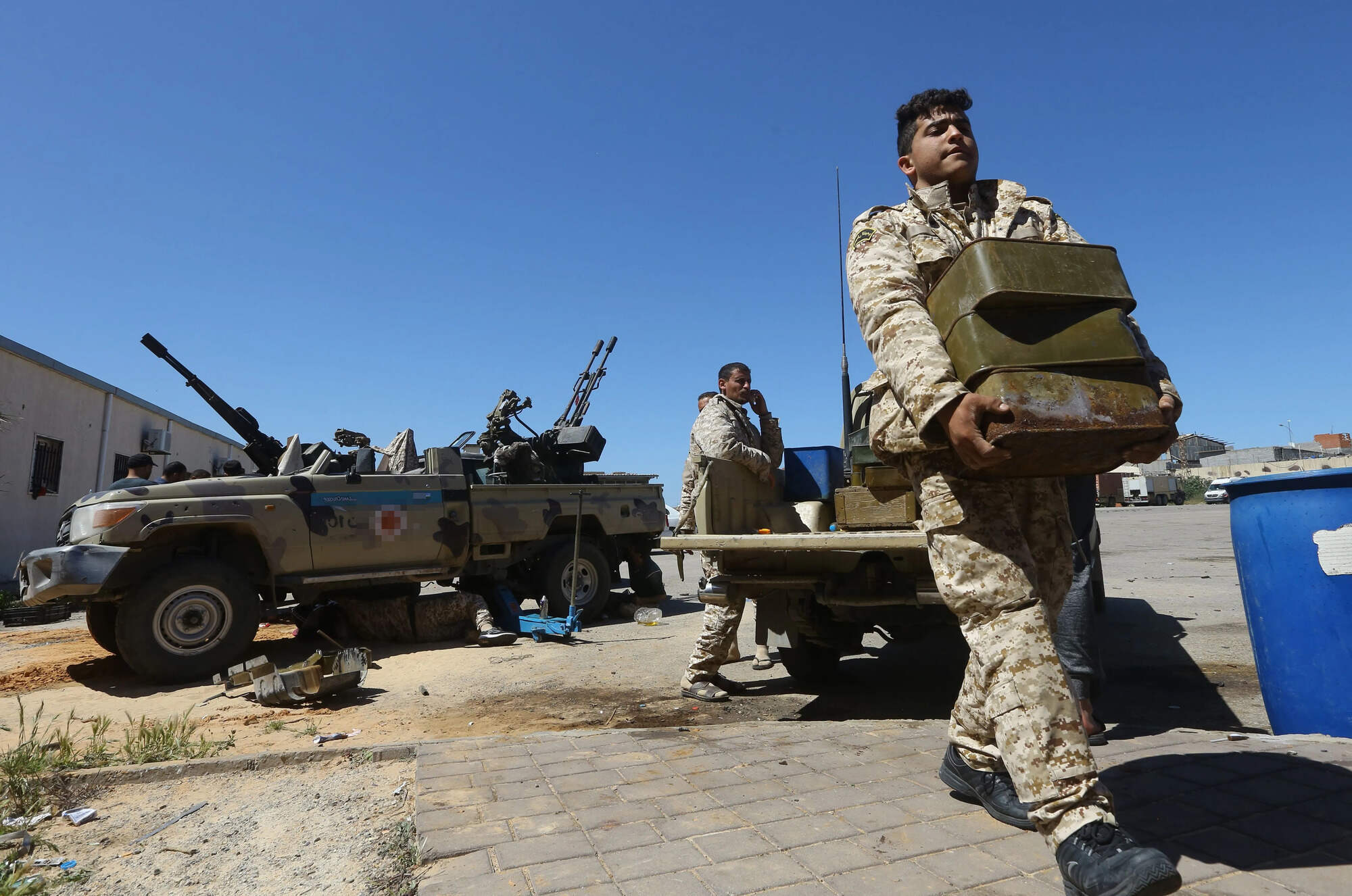
What sparked the Second Libyan Civil War? The Second Libyan Civil War began in 2014 due to a power struggle between rival factions. After the fall of Muammar Gaddafi in 2011, Libya faced political chaos. Two main groups emerged: the internationally recognized Government of National Accord (GNA) and the Libyan National Army (LNA) led by Khalifa Haftar. Why did the conflict escalate? The conflict escalated because both sides sought control over Libya's vast oil reserves and key cities. Foreign intervention further complicated matters, with countries like Turkey, Russia, and Egypt backing different factions. How has it affected Libya? The war has devastated Libya, causing thousands of deaths, displacing many, and crippling the economy. Understanding this conflict helps grasp the complexities of modern geopolitics and the challenges of post-revolutionary states.
Key Takeaways:
- The Second Libyan Civil War, which began in 2014, involves multiple factions vying for control of Libya. It has led to widespread chaos, displacement of people, and severe disruptions to the economy.
- Foreign nations have played significant roles in the conflict, supporting different factions. The war has had devastating effects on the Libyan population, leading to a severe humanitarian crisis and impacting the country's economy.
Background of the Second Libyan Civil War
The Second Libyan Civil War began in 2014, following the first civil war and the fall of Muammar Gaddafi. This conflict has involved multiple factions vying for control of Libya, leading to widespread chaos and suffering.
- The war started in May 2014 when General Khalifa Haftar launched Operation Dignity against Islamist militias in Benghazi.
- The conflict has primarily been between the internationally recognized Government of National Accord (GNA) and the Libyan National Army (LNA) led by Haftar.
- The United Nations has attempted multiple ceasefires and peace talks, but lasting peace remains elusive.
- The war has displaced over 200,000 people within Libya.
- Libya's oil production, a key economic driver, has been severely disrupted by the conflict.
Key Players in the Conflict
Understanding the main actors in the Second Libyan Civil War is crucial to grasping the complexity of the situation.
- The Government of National Accord (GNA) was established in 2015 and is based in Tripoli.
- The Libyan National Army (LNA) is led by General Khalifa Haftar and controls much of eastern Libya.
- Various Islamist militias, including the Shura Council of Benghazi Revolutionaries, have played significant roles.
- The Islamic State (ISIS) also established a presence in Libya during the conflict.
- Local tribes and armed groups have shifted alliances, adding to the chaos.
International Involvement
Foreign nations have played significant roles in the Second Libyan Civil War, often supporting different factions.
- Turkey has provided military support to the GNA, including drones and troops.
- The United Arab Emirates (UAE) and Egypt have backed Haftar's LNA with weapons and airstrikes.
- Russia has been accused of sending mercenaries from the Wagner Group to support the LNA.
- France has also been implicated in providing covert support to Haftar.
- The United Nations has imposed an arms embargo on Libya, but it has been widely violated.
Humanitarian Impact
The war has had devastating effects on the Libyan population, leading to a severe humanitarian crisis.
- Over 1.3 million people in Libya require humanitarian assistance.
- Hospitals and medical facilities have been frequently targeted and damaged.
- The conflict has disrupted education, with many schools closed or repurposed as shelters.
- Migrants and refugees in Libya have faced extreme dangers, including detention and abuse.
- Food insecurity has risen sharply, with many families struggling to access basic necessities.
Economic Consequences
Libya's economy, heavily reliant on oil, has been severely impacted by the ongoing conflict.
- Oil production has fluctuated dramatically, often halting due to blockades and attacks.
- The Central Bank of Libya has struggled to manage the country's finances amid the chaos.
- Inflation has soared, making everyday goods unaffordable for many Libyans.
- Unemployment rates have increased, particularly among young people.
- Infrastructure, including roads and power plants, has been extensively damaged.
Efforts Towards Peace
Despite the ongoing violence, there have been numerous attempts to broker peace and rebuild Libya.
- The Berlin Conference in January 2020 brought together international stakeholders to discuss a political solution.
- The Libyan Political Dialogue Forum (LPDF) was established to create a roadmap for elections.
- A ceasefire agreement was signed in October 2020, though violations have occurred.
- The United Nations Support Mission in Libya (UNSMIL) has been actively involved in mediation efforts.
- Libyan elections are planned, aiming to establish a unified government and end the conflict.
Reflecting on the Second Libyan Civil War
The Second Libyan Civil War has left a profound impact on Libya and its people. This conflict, marked by complex alliances and shifting power dynamics, has reshaped the nation's political landscape. Understanding the key events and players helps grasp the broader implications for regional stability and international relations.
The war has highlighted the challenges of post-revolution governance and the struggle for control over Libya's vast resources. It’s a stark reminder of how internal conflicts can have far-reaching consequences, affecting not just the immediate region but the global community.
As Libya continues to navigate its path toward peace and stability, the lessons from this conflict remain crucial. Awareness and informed discussions about such events are essential for fostering a more peaceful and stable world.
Frequently Asked Questions
Was this page helpful?
Our commitment to delivering trustworthy and engaging content is at the heart of what we do. Each fact on our site is contributed by real users like you, bringing a wealth of diverse insights and information. To ensure the highest standards of accuracy and reliability, our dedicated editors meticulously review each submission. This process guarantees that the facts we share are not only fascinating but also credible. Trust in our commitment to quality and authenticity as you explore and learn with us.
